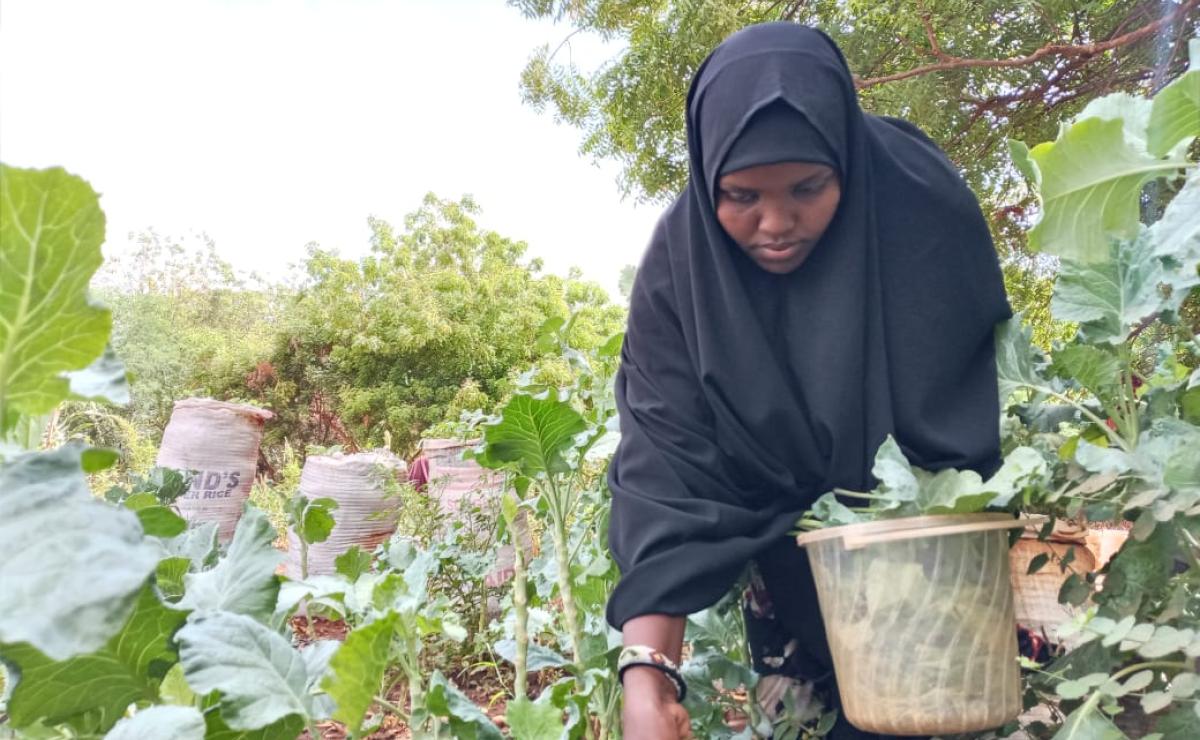Smart farming initiative in arid climate of Dadaab

Refugees living in Dadaab do not readily have access to fresh fruit and vegetables. This is due to water scarcity and the hot, dry climatic conditions that they live in. In protracted refugee camp situations, where people are almost entirely dependent on humanitarian assistance, the challenges are even more pronounced.
The Lutheran World Federation (LWF) is supporting women and self-help groups through development and adaptation of Multi-Storey Gardening (MSG) as an innovative and solution-oriented approach in addressing food insecurity, particularly in areas of Dadaab refugee camp and the wider County of Garissa where access to land and water is a challenge.
“We have secured a one-acre piece of land through LWF support and we are growing vegetables, cereals and fruits for our domestic consumption and for the market. The farm produce includes kales, okra, beans, water melon, pumpkins and chili,” says Noorto Ali, a member of Ifo gardening and self-help association in Dadaab, Kenya.
The LWF has provided training to the farmers on how to manage crops and handle the business side of the project. Thanks to the training, the women are able to do the farming on their own. LWF continues to provide farming implements such as spades, wheel barrows, hoes, slashers, boots and access to water.
The World Food Programme (WFP) is providing empty 50kg cereal bags which are distributed to vulnerable older persons engaged in the farming activities. The cereal bags are filled with soil and are used for growing the seeds above the ground. Some members prefer using both traditional homestead gardening and sacks for planting the seeds. The sacking method has advantages over ordinary crop production as it is easier to manage, limits evaporation and loss of water through loose soil. Its compacted form ensures that crops make use of most of the available water. It is also easier to monitor root formation of the crops.
“The main challenges that we face include lack of adequate tools including sprinklers, sprayers and a water tank. The fencing is weak and goats can roam inside the farms and eat our crops. We also need pesticides and additional seeds including spinach, guava, peperoni to diversify our yield. We are also considering installing a greenhouse as an advanced model,” says Noorto.
Having an income to support themselves and their families is the strongest motivating factor for the group members. “Despite many challenges, we are still able to generate a modest income from farming. In one week, I earn 300 Kenya Shillings (3 USD) from sale of kales, locally known as Sukuma wiki. Water mellon is yet to mature but the market price is 300 shillings a piece. Normally when the green leafy vegetables are ready for harvest they can be picked two to three times in a week,” says Noorto.
The LWF has established the multi-storey gardening approach as a camp-based model for purposes of guidance and learning. The garden was initially tested and established in 2018 guided by LWF staff and is currently doing well at Hagadera 1 and Githuthey. Sixty per cent of the persons with specific need in the household who have embraced the concept are now having regular meals with fresh green vegetables.

